The Timeless Appeal Of The David Brown Speedback GT
Or what would be an Aston Martin DB5 of the 21st century...
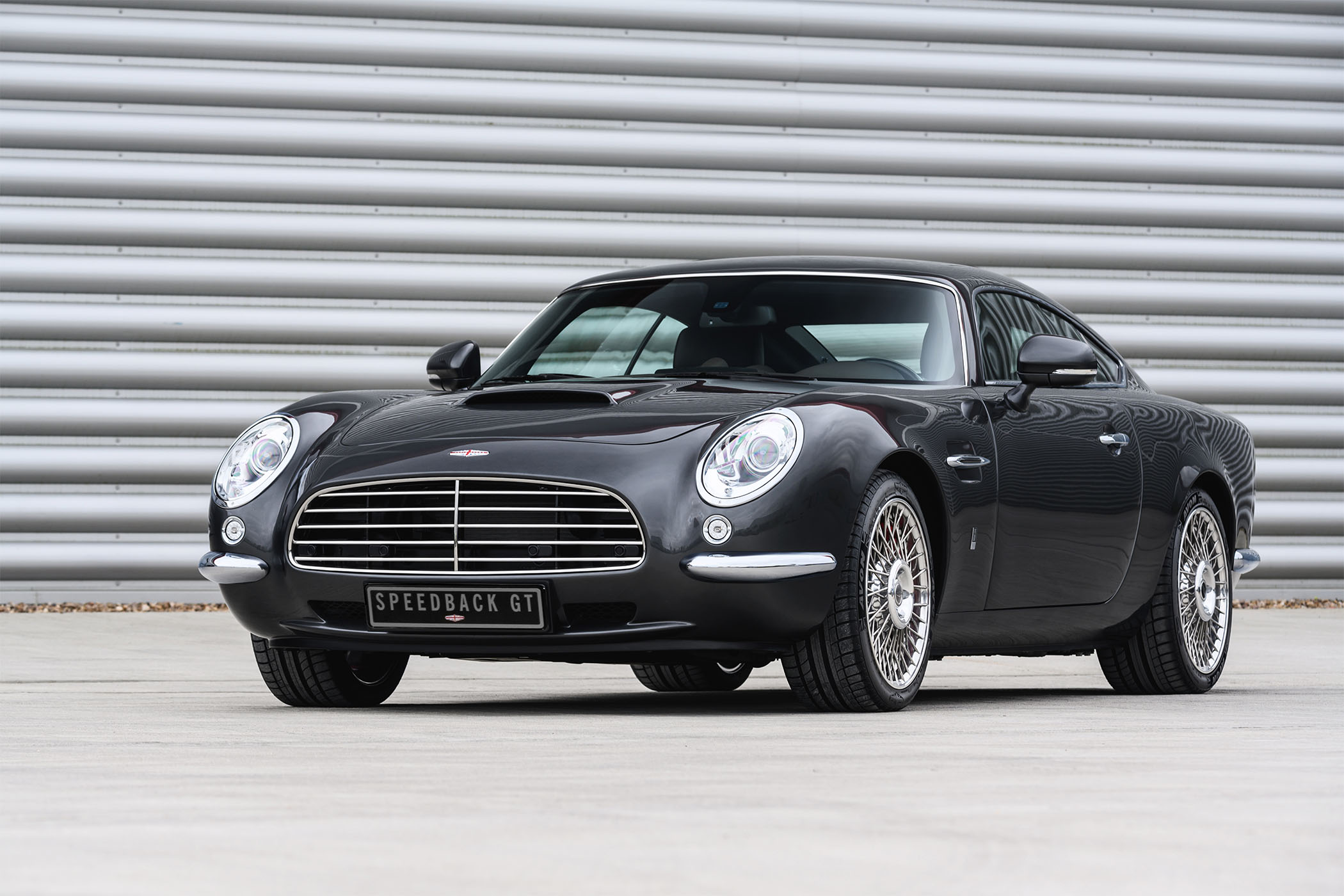
If there’s one thing we’ve learned from the art of timekeeping, is that no matter how far time moves, some things are able to happily stand still. As far as technology has evolved, we can argue that the mechanics of watchmaking hasn’t changed much in the last few centuries or so. New innovations here and there, but its principles are ultimately resistant – perhaps ironically – to the passage of time itself. That idea of ‘timelessness’ applies to the automotive world, as well. Case in point, the David Brown Speedback GT.
The same way a vintage Rolex still appears contemporary on the wrists of the modern lady or gentleman, the Aston Martin DB5 looks just as luscious today, as it did back in the 1960s. It was an icon and remains especially so in the hearts and minds of many thanks to the silver screen, and one Sir Sean Connery. The past six decades have done little, if any, to blemish that lustre. But should the Aston Martin DB5’s timelessness really need to be re-invented – à la the David Brown Speedback GT – for the modern age?
To put that idea to the test, David Brown Automotive created the Speedback GT; a rethinking of what the DB5 might look like if it was re-made on a 21st-century production line. This David Brown isn’t related to Sir David Brown, mind you. The latter was responsible for saving Aston Martin from bankruptcy in 1947 and thus lent his initials to the ‘DB’ line of cars that have remained a staple till this day. The former dreams of reimagining old cars – such as the original Austin Mini – into the new era.
Even at a brief glance, you can certainly tell where the inspiration came from. The Speedback GT’s design looks as though they’ve traced over a DB5, line for line. Its swoopy silhouette and curvaceous hips are uncanny with the old Aston, though that’s no bad thing given how jaw-droppingly pretty the DB5 is. The bonnet – or “hood”, if you must – is slightly elongated, and devoid of the traditional Aston Martin moustache-like grille.
The bodywork is a bit more toned down in the Speedback GT, while the DB5’s iconic rear fins aren’t as pronounced. David Brown’s reimagination just appears a bit… Soft, and a little tame compared to the flamboyance of the DB5. The Speedback GT is simply not as sexy of a shape as the DB5 that it pays homage to. Nonetheless, it’s still a pleasingly intriguing and wonderful sight to see as it zooms past, and you’re right to confuse it with its classic idol.
The eye candy is even more intense once you take a moment to appreciate how the Speedback GT was built in the first place. The bodywork is made from aluminium and shaped the old-fashioned way by having each panel rolled, and formed on an English wheel. There are no laser-guided robots here, just true artisans displaying the art of traditional British craftsmanship on wheels. The paintwork has a glistening glow, with a warm depth and richness, tailored to the owner’s preference.
The chrome trim on the exterior is complemented first with a copper finish, giving it a comforting radiance once it’s been polished to perfection. Meanwhile, the Speedback GT’s badges were done by jewellers, putting in their fine silversmithing to practice. Of the 8,000 long and gruelling hours spent on hand-building the Speedback GT, 800 went to the finishing alone. It’s hard not to get distracted just by admiring all the fine little details.
But don’t stare for too long, or else you might discover what lies underneath all that rolling artwork. David Brown’s Speedback GT is built on a Jaguar, and not a new one at that. Peel away all the paints, and you’ll find the old Jaguar XK-R. Of course, you can’t expect a small boutique carmaker to afford to build their own chassis, power-, and drive-train from scratch. But is an ageing Jaguar platform – which was still decently fresh at the time – really the best fit for the Speedback GT?
First impressions do suggest that they’re a fairly good match. Dynamically, David Brown has knocked the rawness of the XK-R down a few notches, focusing on the GT being a namesake grand-tourer first, and an athletic sports car second. So, expect it to be less of an angry racer, and without the tyre-smoking sideways action, you might notice in an XK-R. However, this doesn’t mean that the GT has been turned into a soft and lazy machine.
There’s plenty of poke once you press down on the go-faster pedal, thanks to the XK-R’s twin-scroll supercharged, 5.0-litre V8. Even when clothed under the Speedback GT’s more level-headed personality, the growls and whines of the Jaguar engine underneath makes itself known. With 503hp and 461-lb-ft of torque, you can manage 0-60mph in a very respectable 4.8-seconds, before topping it out to an electronically-limited top-speed of 155mph.
If the cruising speeds are just a bit too slow, then the uprated Speedback Silverstone Edition will supplement your needs with a re-tuned engine, now pumping out 601hp, and 565-lb-ft of torque. Either version will see your shifting be done with a ZF 6-speed automatic. Both powerplants mark quite a hefty upgrade over the DB5’s 286hp, inline-6 motor. There is at least one possible downside to using last-decade Jaguar parts, though; their infamous track-record with electrics.
The by now already outdated infotainment system and semi-digital dash will sadly look even more ancient in a few years’ time. The Speedback GT is definitely not as timeless as the original DB5, then. This is a distracting flaw in an otherwise gorgeous interior, lined with supple leathers, beautiful wooden trim, and switchgear milled from solid billets of aluminium. The cost of all this indulgence? Well, depending on your whims, that’s at least a GBP 500,000 hole burning through your pocket.
Granted, only 100 Speedback GTs will be built, maintaining its exclusivity to a mere handful of lucky owners. Mind you, a mint and freshly-restored DB5 can be had for the same money, while a later DB6 can be found for half-off. Although not as sporty or gadget-packed as its modern re-incarnation, at least you’re getting a machine that will age like fine wine. So, is the Speedback GT really worth more than a DB5? This writer doesn’t think so, but you’re welcomed to disagree.
More information on the David Brown Speedback GT. A CarMagazine review of the Speedback GT to read here and an AutoCar review of the Speedback GT to read here.
This article was written by Zack Norman.

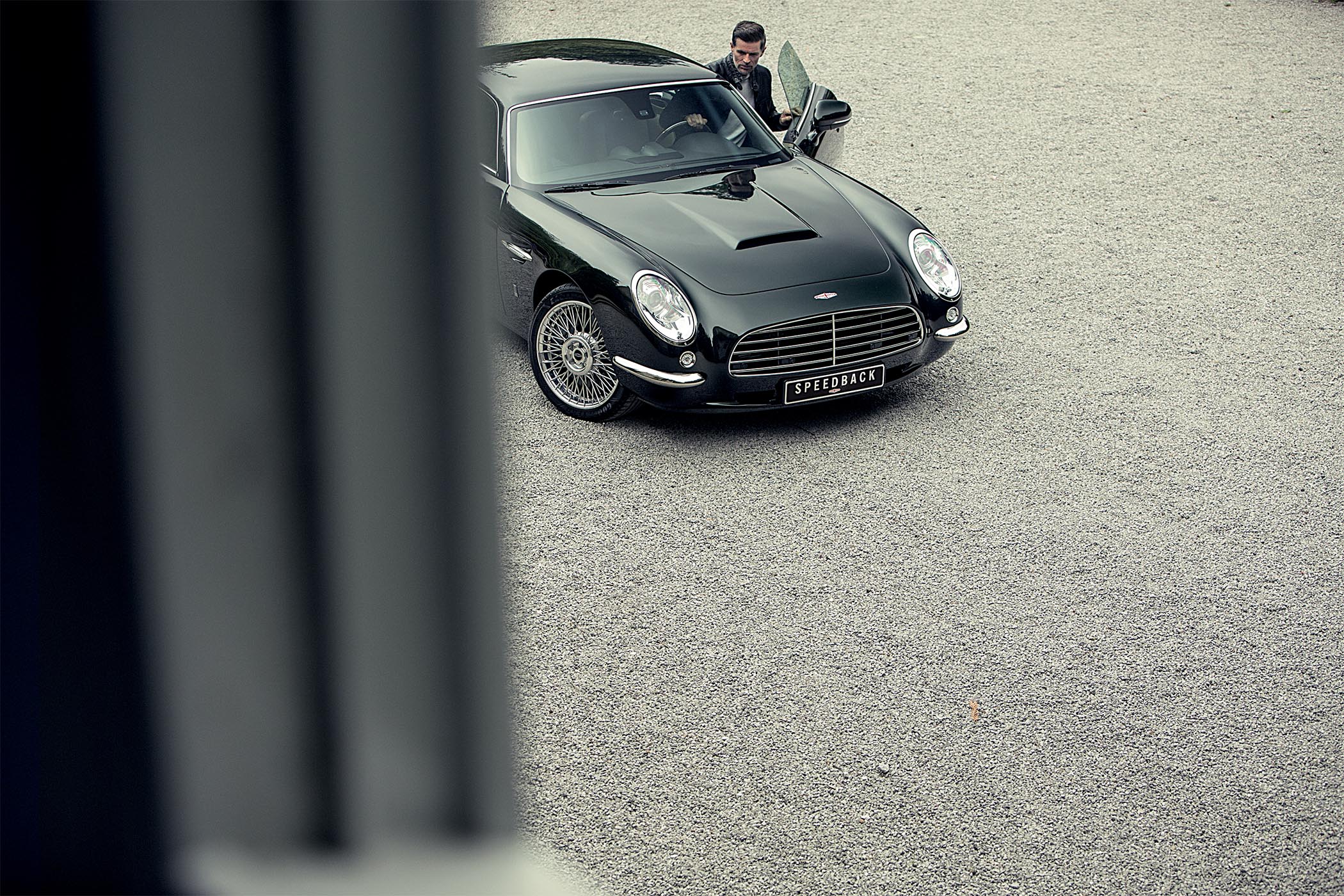


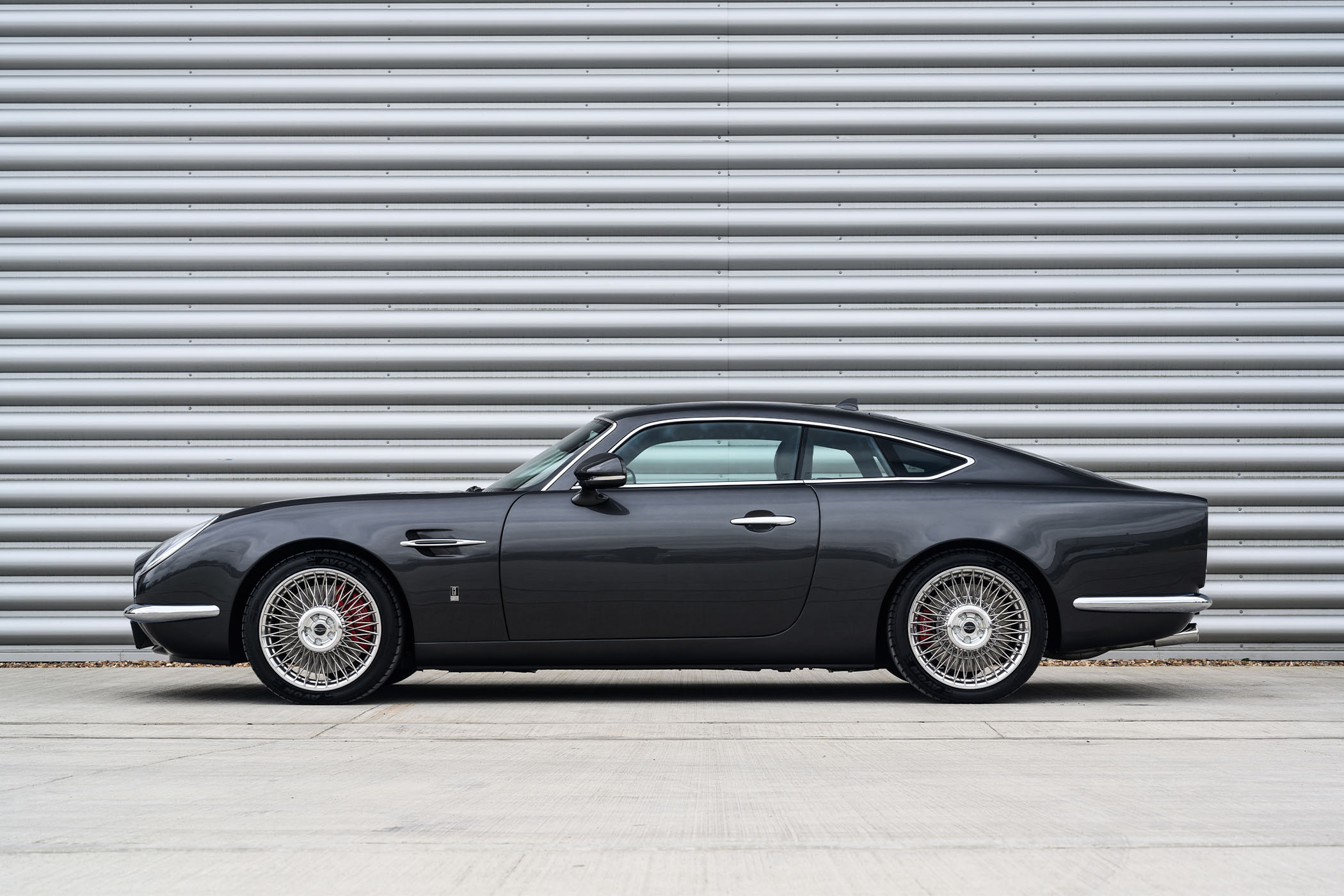
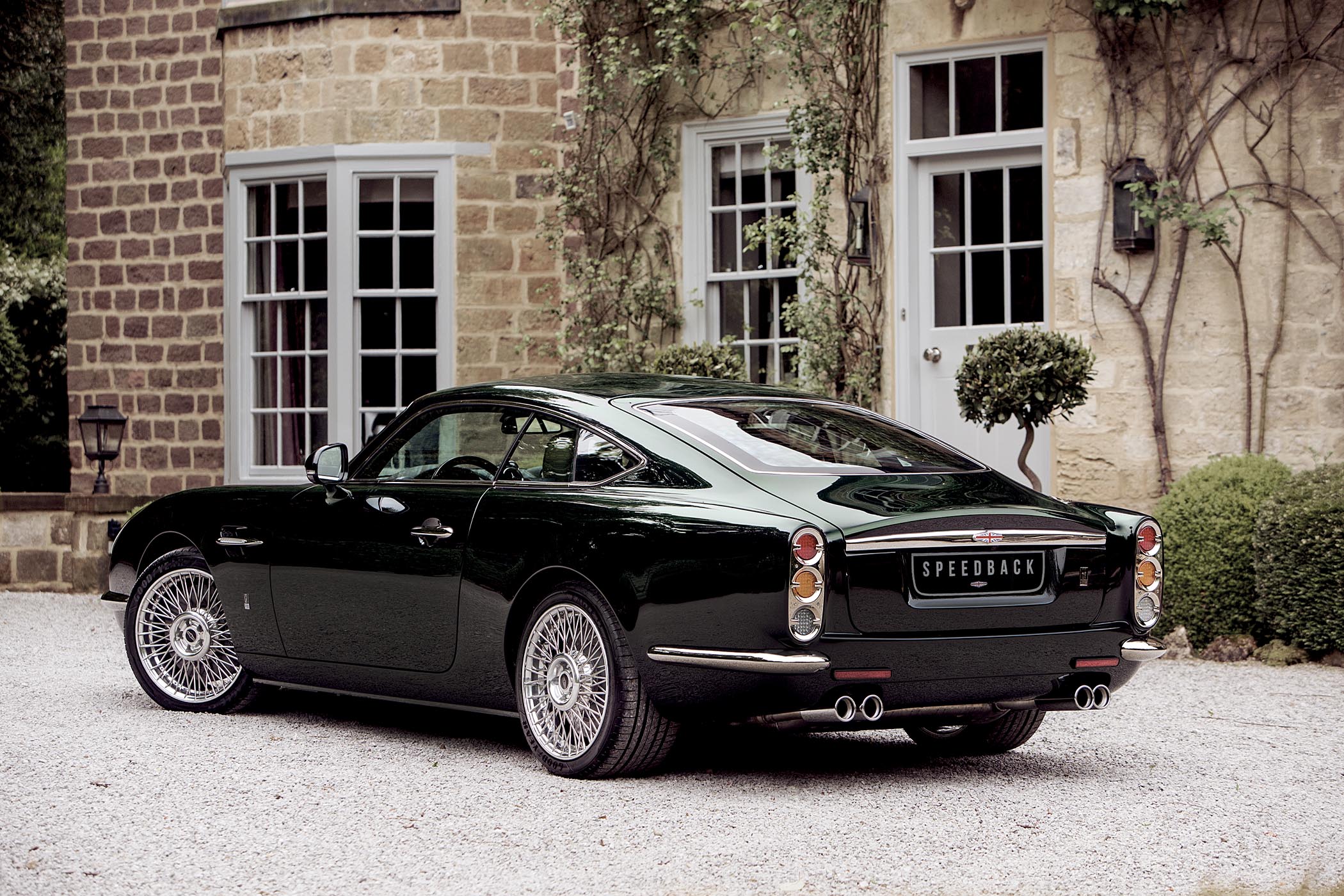
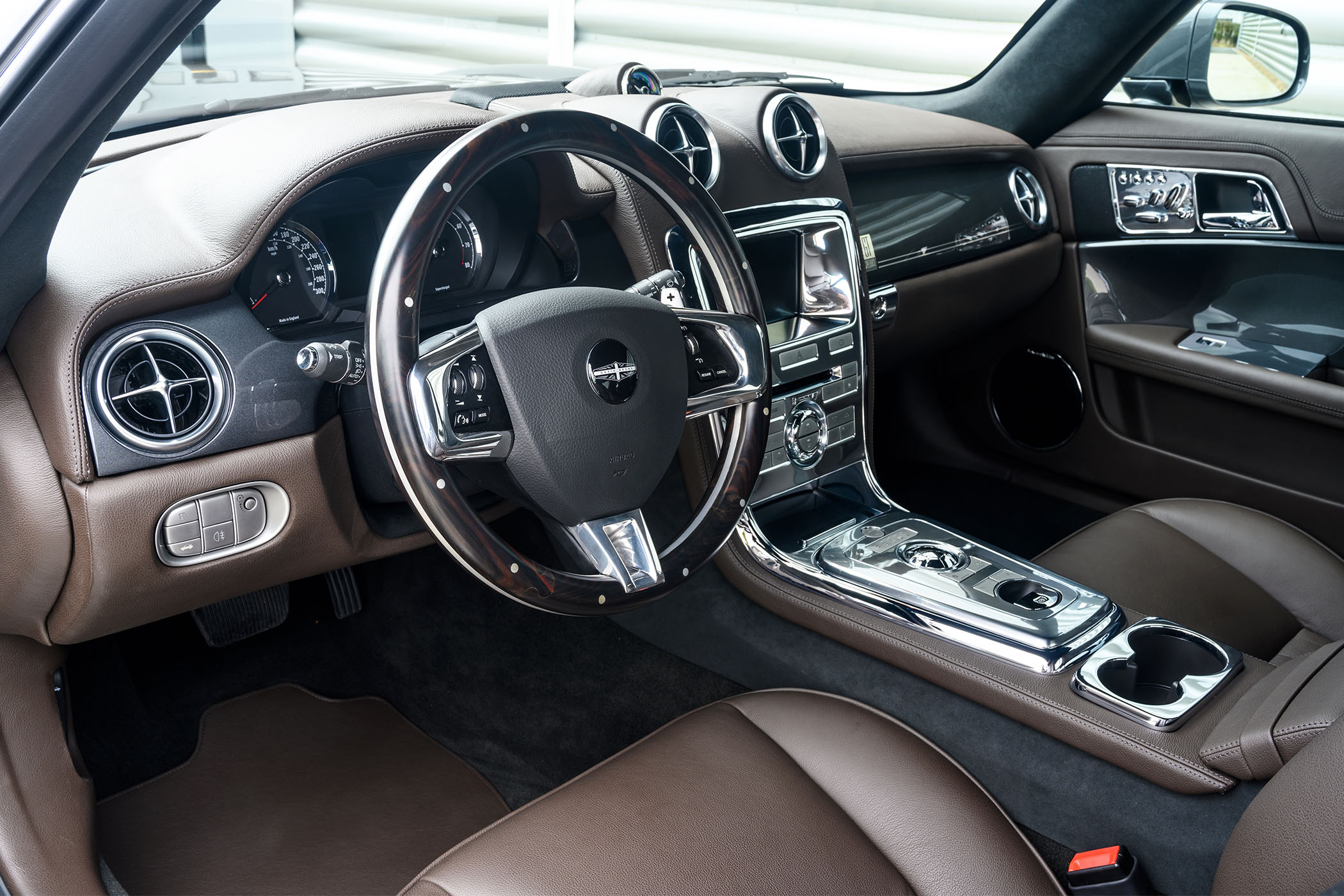
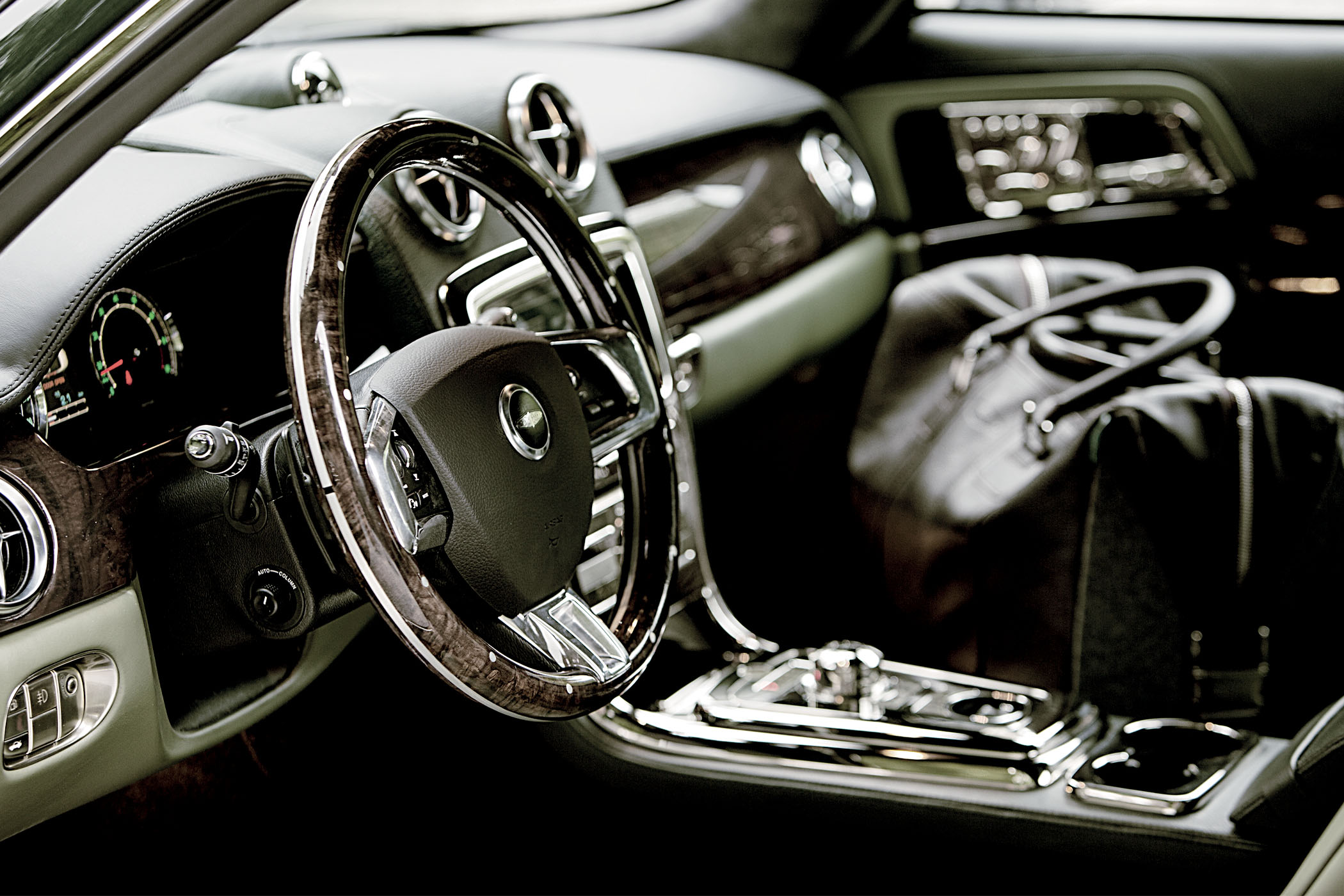
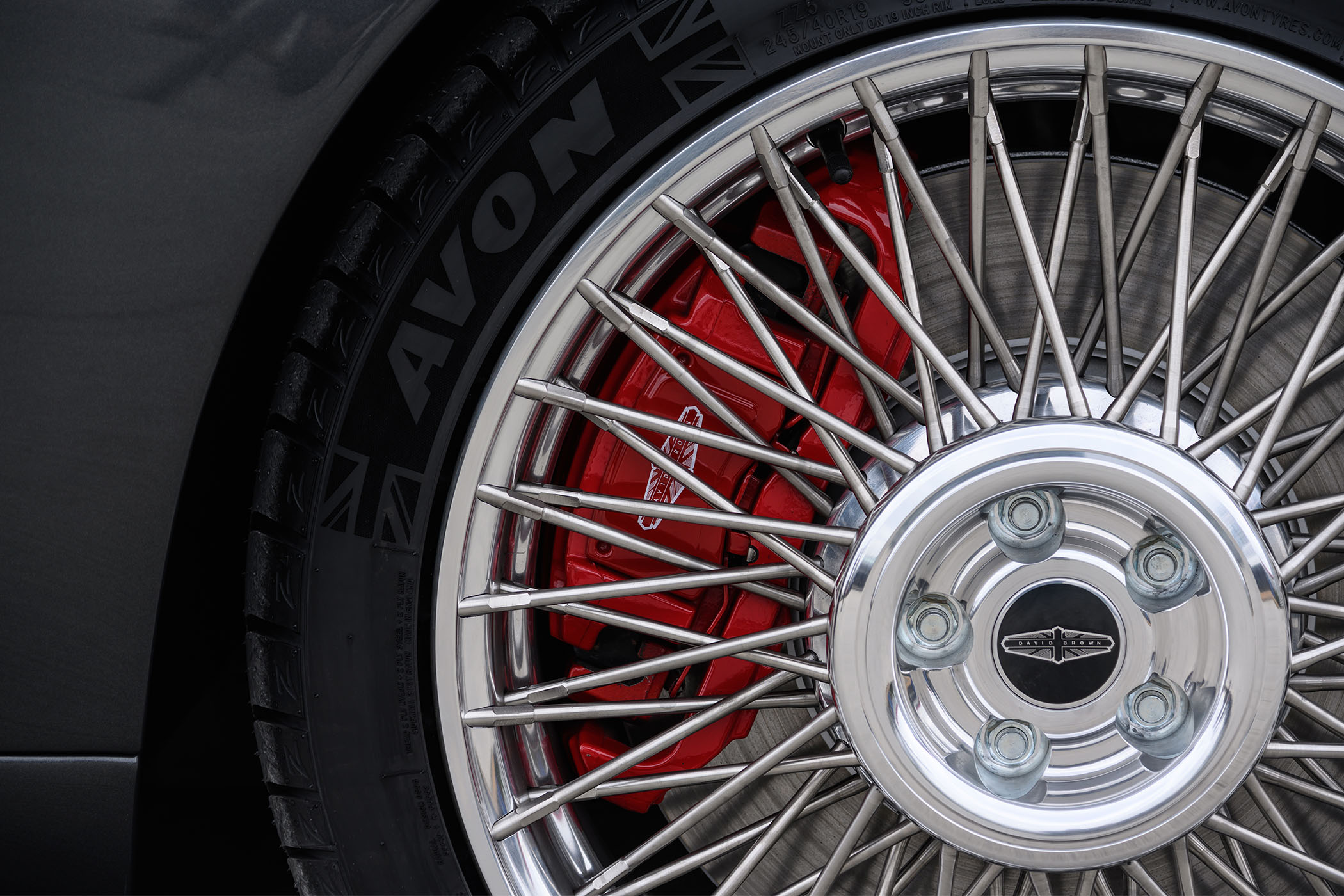



6 responses
I agree that this isn’t an improvement over the DB5. The front is too mini-esque and the rear, though better, doesn’t really improve the look over the original. Compared with a how, say, Zagato went about his work this just doesn’t do it for me. That said I wouldn’t kick it out of the garage..
Faux retro. Nothing beats the real thing.
Thinking of a new car. Had a few minis, fabulous little car. Got all enthusiastic when I saw they do an updated version. I can think of 100,000 reasons not to.
The article does not mention that the David Brown Speedback GT has actually been around for quite a while, at least as a concept/proof of concept car. The first time Autocar magazine in the UK covered it was 2014. At that time the Jaguar XK was only just reaching the end of its production run. In fact the XK-R carried on until late 2015 with quite a number of vehicles still being sold from factory stock into 2016. In that context the use of the XK underpinnings and infotainment system etc is not at all unusual. Unfortunately for David Brown the Speedback GT has not sold too well and so they are still on the market in 2021. THe Speedback is also up against some stiff competition from cars like the Eagle Speedster (an E-Type Jaguar recreation) and Singer Porsches. Most of those cars are a similar price but are either far better looking (Eagle) or much closer to the original (Singer). There are even a number of companies now offering vintage sports cars with fully electric drivetrains like Polestar with their electric Volvo P1800. David Brown should perhaps have tried to obtain Jaguar F-Type chassis and drivetrains by now which would allow then to use up to date electronic and infotainment systems and would have had the advantage that the shorter wheelbase of the F-Type compared to the XK would have allowed them to get much closer to the proportions and size of the original DB5.
In some meaningful ways,this does beat the real thing.
And yes they for sure should use the f type as the underpinning.